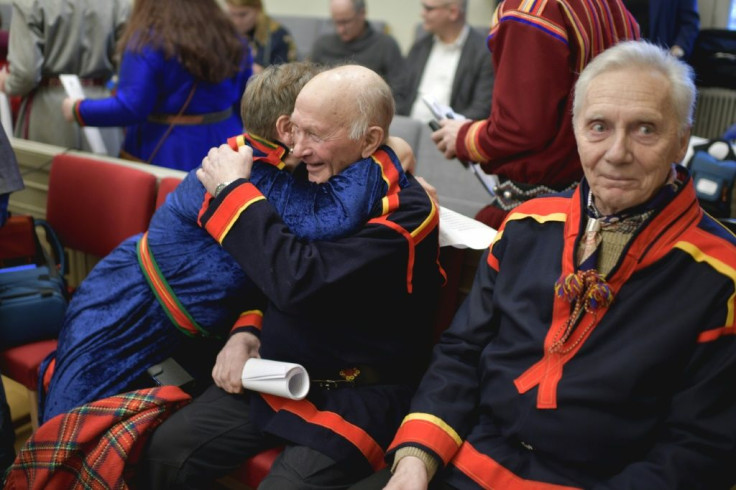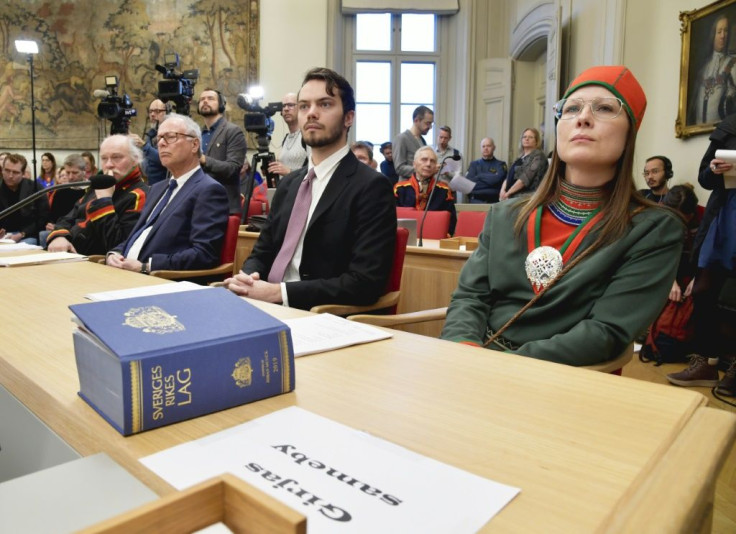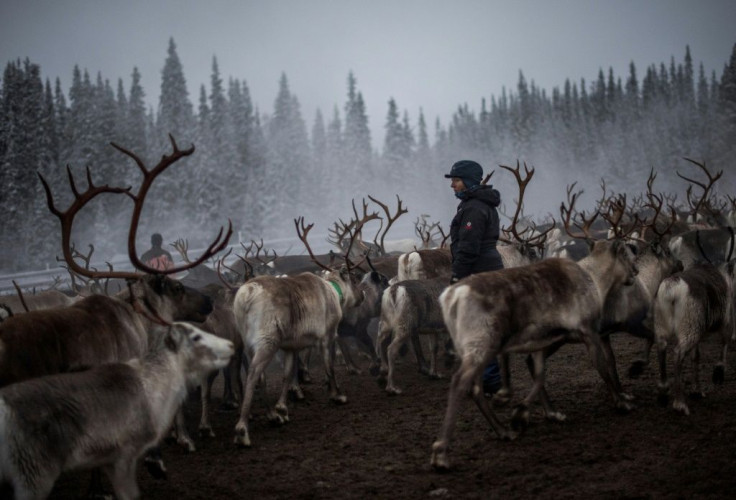Sami Association Wins Historic Hunting Rights Case Against Sweden

Sweden's top court on Thursday granted a Sami association in the far north the right to regulate local hunting and fishing activities, scoring a legal precedent in favour of the country's indigenous community.
The case, which has been going through the courts for more than a decade, concerns conflicting claims about who has the right to make decision about hunting on lands traditionally used by the indigenous Sami people for reindeer herding.
"We have reached the conclusion that this Sami association, Girjas, have the exclusive right to administer hunting and fishing in the area that is contested," Judge Anders Eka told AFP on Thursday at the Stockholm courthouse.
"Both in terms of hunting themselves and to decide on permits for other hunters," Eka continued.
The state, which normally handles hunting and fishing permits, has claimed the right to administer hunting and fishing should fall to it as the owner of the land.
But the court cited the association's right by tradition "from time immemorial," meaning the Sami association had proven it had used the lands for centuries.
In the ruling, which was met by applause from representatives of the minority group dressed in traditional colourful garb, the court said the right extended to the association's entire area, with the exception of arable land, and that it could henceforth be exercised "without the state's approval."

The verdict had been greatly anticipated.
The case started in 2009 when the Girjas Sami sued the Swedish state for the rights.
"Well this is 10 years of legal struggles that have reached a conclusion, and the court ruled in our favour. It feels fantastic, I gotta say," Matti Berg, head of Girjas Sami association, told AFP.
Sami associations are financial and administrative unions representing Sami people in different regions.

Girjas' territory covers some 5,500 square kilometres (2,100 square miles) around the northern towns of Kiruna and Gallivare, and their legal battle has been supported by the Swedish Sami Federation (SSR).
The Sami association challenged a 1993 reform that allowed other hunters and fishermen the right to hunt small game and fish on the territory, under the administration of the state, which has owned the land since the end of the 19th century.
Chancellor of Justice Mari Heidenborg, who represented the state, said that while the ruling was disappointing she was "glad for the Sami association".
"This has been a prolonged and tough process... so congratulations to them," Heidenborg said.
Anders Eka, who presided over the case, stressed that the immediate consequences of the ruling only concerned Girjas, but added that since the court's decisions were prejudicial the arguments considered could be raised in other cases where the interests of Sami associations and the state clashed.
Heidenborg said that, while the case could have consequences for "large areas" of Sweden, how this ruling should be applied was at this point a question for politicians.
The Sami are believed to have arrived in the region at the end of the last ice age.
Victims of a brutal assimilation policy in the past, today they have their own parliament in Sweden, but rights groups continue to denounce the state's handling of Sami issues.
In particular, calls have been made for Sweden to ratify the International Labour Organization's (ILO) Convention 169 on indigenous and tribal peoples.
On Monday a hearing will be held in Geneva before the UN Human Rights Council on Sweden's policy on respect and protection of minority rights and the fight against racism and discrimination.
The NGO Civil Rights Defenders has submitted a report to the council which includes recommendations such as the ratification of the ILO convention and taking concrete steps to "recognise Sami rights to traditional lands, territories and resources."
The report noted that while measures had been taken since the last report in 2015, those measures had "limited effect" and the "situation of the Sami People constitutes one of Sweden's most serious human rights issues."
© Copyright AFP 2024. All rights reserved.





















